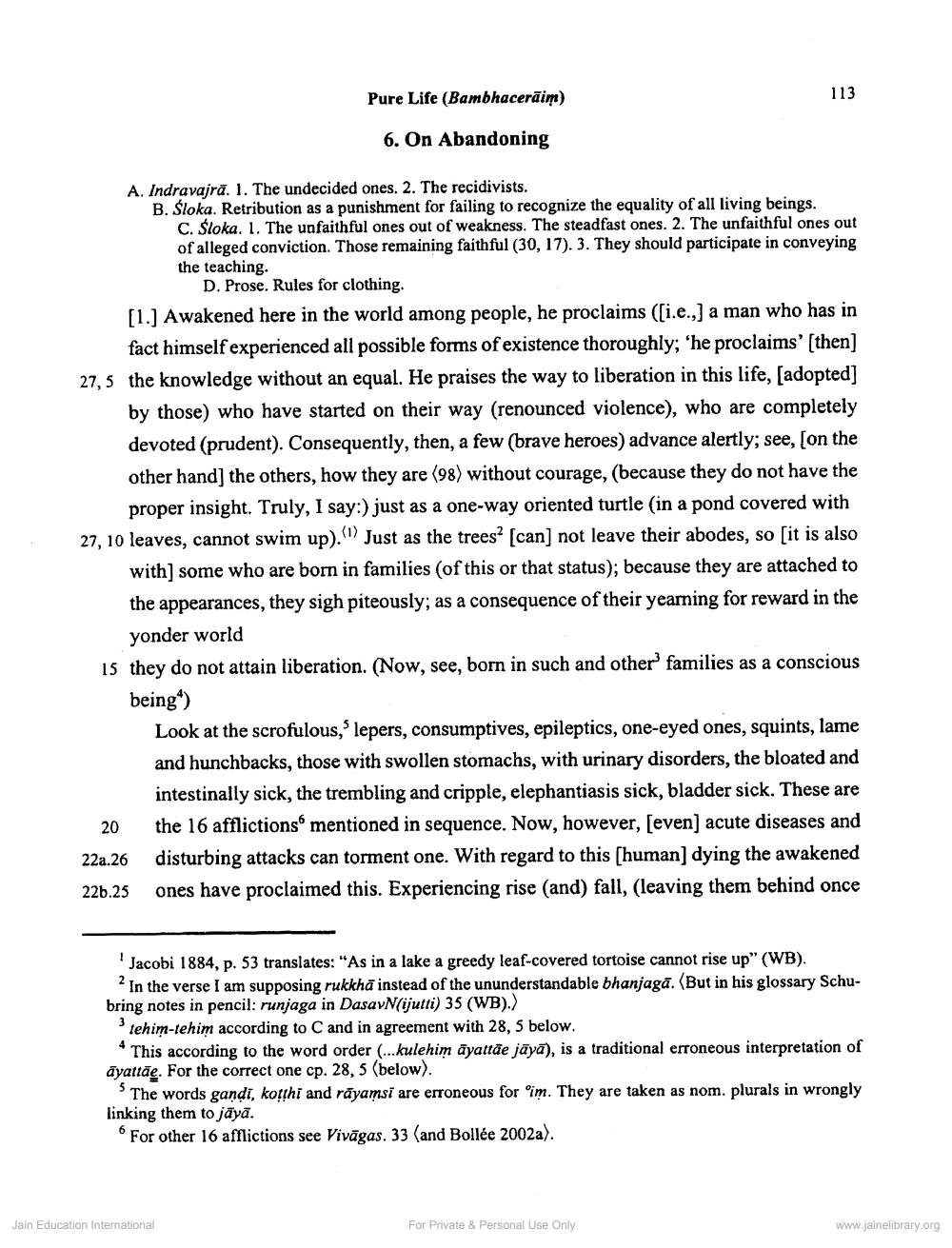________________
Pure Life (Bambhacerāim)
113
6. On Abandoning
A. Indravajra. 1. The undecided ones. 2. The recidivists. B. Sloka. Retribution as a punishment for failing to recognize the equality of all living beings.
C. Sloka. 1. The unfaithful ones out of weakness. The steadfast ones. 2. The unfaithful ones out of alleged conviction. Those remaining faithful (30, 17). 3. They should participate in conveying the teaching.
D. Prose. Rules for clothing. [1.] Awakened here in the world among people, he proclaims ([i.e.,) a man who has in
fact himself experienced all possible forms of existence thoroughly; 'he proclaims' (then) 27,5 the knowledge without an equal. He praises the way to liberation in this life, (adopted]
by those) who have started on their way (renounced violence), who are completely devoted (prudent). Consequently, then, a few (brave heroes) advance alertly; see, (on the other hand] the others, how they are (98) without courage, (because they do not have the
proper insight. Truly, I say:) just as a one-way oriented turtle (in a pond covered with 27, 10 leaves, cannot swim up). Just as the trees? [can) not leave their abodes, so [it is also
with) some who are born in families (of this or that status); because they are attached to the appearances, they sigh piteously; as a consequence of their yearning for reward in the
yonder world 15 they do not attain liberation. (Now, see, born in such and other families as a conscious being)
Look at the scrofulous," lepers, consumptives, epileptics, one-eyed ones, squints, lame and hunchbacks, those with swollen stomachs, with urinary disorders, the bloated and
intestinally sick, the trembling and cripple, elephantiasis sick, bladder sick. These are 20 the 16 afflictions mentioned in sequence. Now, however, [even) acute diseases and 22a.26 disturbing attacks can torment one. With regard to this (human] dying the awakened 226.25 ones have proclaimed this. Experiencing rise (and) fall, (leaving them behind once
Jacobi 1884, p. 53 translates: "As in a lake a greedy leaf-covered tortoise cannot rise up" (WB). 2 In the verse I am supposing rukkhā instead of the ununderstandable bhanjagā. (But in his glossary Schubring notes in pencil: runjaga in DasavN(ijutti) 35 (WB).)
tehim-tehim according to C and in agreement with 28, 5 below.
This according to the word order (...kulehim āyattāe jāyā), is a traditional erroneous interpretation of ayattāe. For the correct one cp. 28, 5 (below).
The words gandi, koshi and rāyamsi are erroneous for im. They are taken as nom. plurals in wrongly linking them to jāyā.
For other 16 afflictions see Vivāgas. 33 (and Bollée 2002a).
Jain Education International
For Private & Personal Use Only
www.jainelibrary.org




